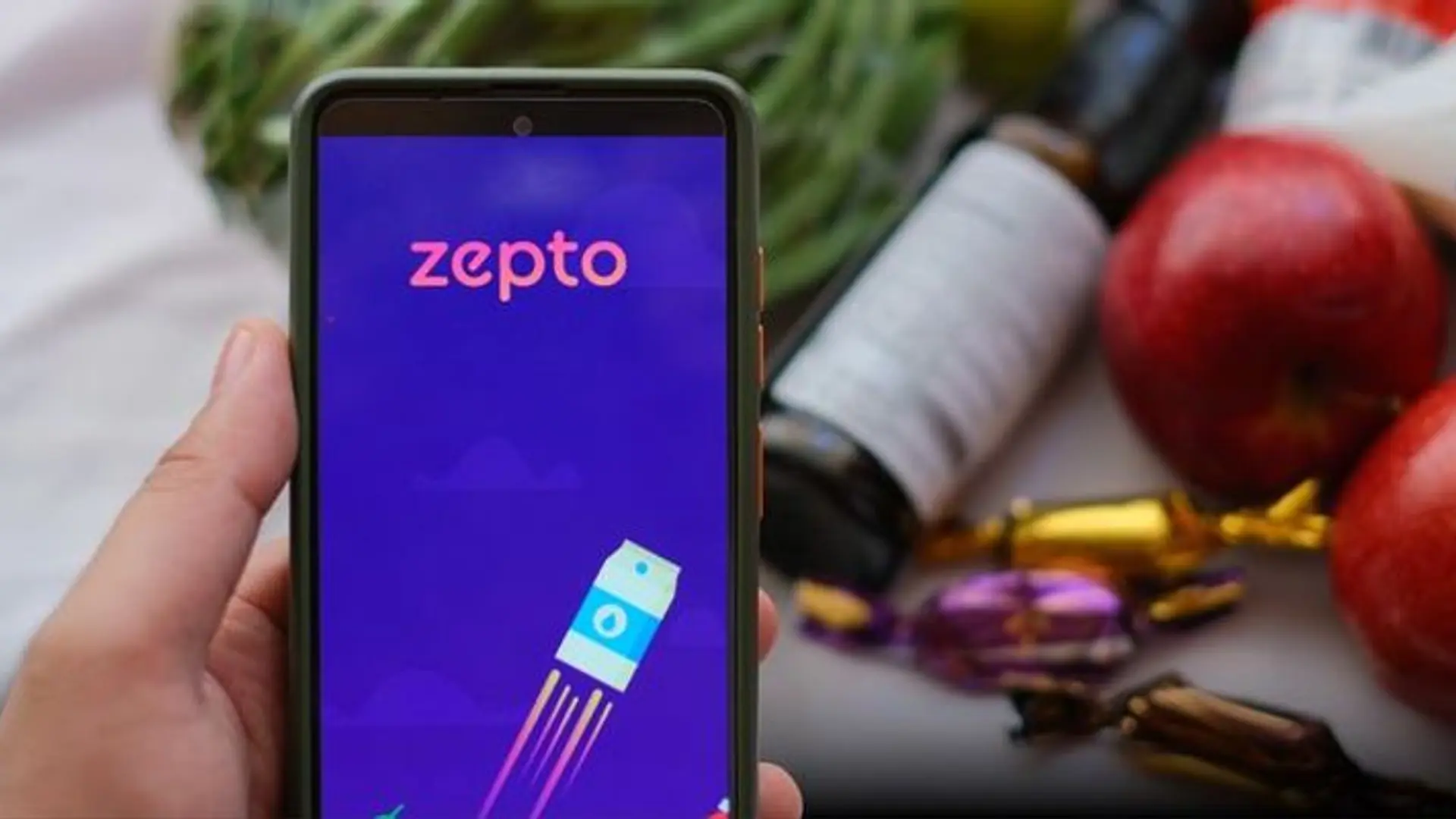Five ways to lead a green life: easy ideas to reduce plastic use
The world’s plastic binge has been termed 'as dangerous as climate change'. Here are five easy alternatives to consider.
Why should you want to live with less plastic? It is cheap, convenient and in many instances the only available option. Though the warnings are all around us, we don’t have to deal with the consequences of its disposal directly. The only time we express distaste is when we see once pristine beaches and mountains littered with its debris. We want our roads to be as clean as our homes and blame the government when it is not.
We mostly give up because we fail to see the power of individual choice. Believing there’s nothing we can do and inured by the constant bombings of doom by mass media, we ignore what we can to retain our sanity. But there’s another way.

“Never doubt that a small group of thoughtful committed citizens can change the world; Indeed it’s the only thing that ever has,” said Margaret Mead. Every conscious choice has a ripple effect. A single plastic refused is one less choking a sea turtle or making us less sick. In our high pressure lives, going full-on activist might not be an option. But these five changes are easily incorporated. Not convinced? Give it a try and go at your own pace. Ditch what doesn’t work for you. But never give up.
Single-use plastic
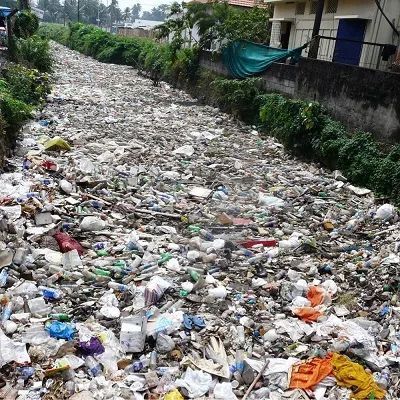
Is there any invention more evil than single-use plastic items? It could be the straw you used to sip your drink at the bar or drink coconut water from the roadside vendor. It could be the paper cup, which actually comes lined with plastic, which you chucked in the trash after finishing your morning coffee. It could be the plastic cutlery you were served your food with while enjoying a snack out. It could even be the bottled water you bought and threw away once its contents were downed. These are things we use for a few minutes or less yet they will outlive us by a few thousand years, choking our drains, polluting our waters, killing marine animals and crowding out landfills.
Plastic seems like such an innocuous part of our daily lives that it is ignorance, rather than apathy, that is contributing to this exploding crisis of our times. In journeying towards a plastic free life, eliminating single use plastics is the easiest start and involves just two steps.
First, we have to refuse what we can do without. Viewing the world through the lens of sustainability is an acquired practice but it soon becomes second nature if you stick with it. During the course of your day monitor what single-use plastics are offered to you. In case it is avoidable, like a straw, avoid it.
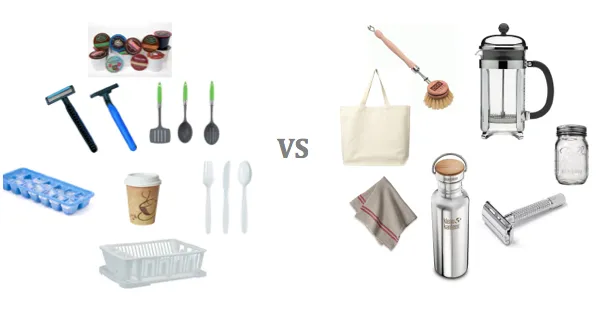
For everything else, carry your own reusable version. Be it a steel straw, portable foldable cutlery, a water bottle or a coffee mug- a green alternative exists for every single-use plastic we trash. In Europe and USA, carrying your own cup to the coffee shop saves you money on your order. Here you might be pioneering a new custom when you place your mug before the barista. But anything that starts a conversation on sustainability and green living is a win. You’ll spend your day feeling good, knowing that you made a positive difference.
Plastic bag
A new study reveals that human beings have produced 8.5 billion tonnes of plastic trash since the 1950s. This has seeped into our planet and our bodies and threatens a near complete contamination of our ecosystem. Plastic bags may seem the most convenient option when out shopping, but they are also quite the deadliest. There’s a reason that some states in India have banned it and others are planning to follow suit.
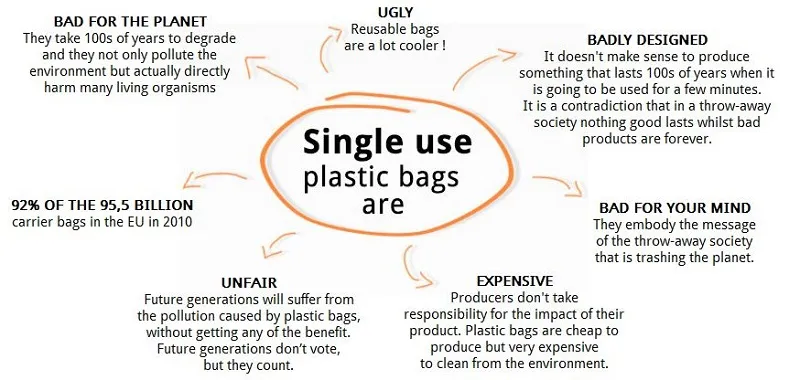
Keep a few cotton tote bags handy — be it in your bag or car — and you’ll never have to resort to the plastic bag again. You can purchase plain cotton bags from social enterprises, make your own from old clothes and fabrics or purchase one with stylish prints on them. There’s an option for every budget and taste. What there isn’t is an excuse to make this most convenient switch.
Toothbrush
The modern non-biodegradable toothbrush did not exist before 1938. Today, 4.7 billion toothbrushes are dumped in landfills and oceans every year. Indians throw 150 million away per month. Yet people had been keeping their teeth clean for thousands of years without it. Be it creative solutions like porcupine bristles or the less appealing horsetail hair, our ancestors turned to Nature for answers, and she did not disappoint. We Asians will be particularly familiar with chewing the neem or miswak stick - a practice that is still common in villages. However if that is too rudimentary for you, social entrepreneurs are coming with green solutions that are up to our modern tastes.
Behold the bamboo toothbrush. The first bamboo toothbrushes were manufactured by Indian origin entrepreneurs in California. Since then many worldwide have taken up the mantle, with Indian entrepreneurs stepping up to the challenge as well. Each time we buy a bamboo toothbrush made in India, we support a social enterprise committed to tackling the plastic epidemic in our country. As Anna Lappe said, “Every time you spend money, you are casting a vote for the kind of world you want.”
Takeout containers
Plastic use leads to lower sperm count in men and fertility illnesses in women. Its manufacture is loaded with endocrine disrupting chemicals responsible for many of the diseases prevalent today, including cancer. The easiest way for these chemicals to enter our bloodstream and release toxins into our body is by consuming hot food off plastic containers and/or with plastic cutlery.
Whether you are ordering food online or packing leftover food at a restaurant, if your meal comes packaged in those flimsy white containers that will be trashed once the food is over- then both you and the planet are at risk. Eliminating this risk requires making lifestyle changes and prior preparation. But the rewards to your health are worth it.
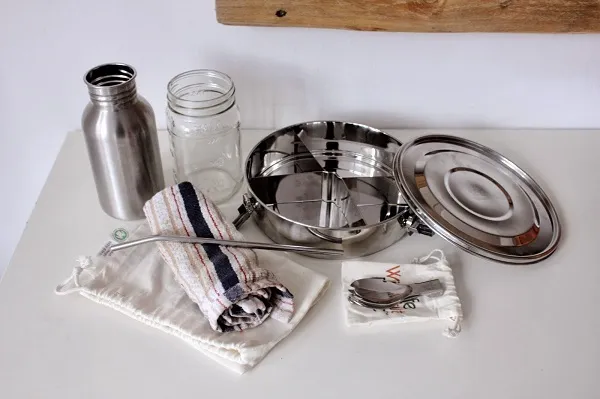
Be it carrying a steel tiffin box while going to eat out or planning meals at home or a friend’s for a festive night in, the options are for you to customise. Depending on your commitment level, you many even consider stocking your go-to local restaurants with your own steel or glass containers. If you are a regular customer, they will hear your request out and the ensuing conversation will help boost your ties to the local community.
Processed food
The twin of single-use plastics is the processed food. The packaging it comes in will be tossed out as soon as we tear it open to devour its contents. And live on long after we’ve had the last meal of our life. Off-the-rack supermarket food is oh-so-satisfying. Be it potato chips, chocolate biscuits or ice cream. Sentimental advertising has glorified instant noodles like no other, never mind the fact that it glues our intestines together. Resisting it requires willpower. Having delicious meals prepped at home is always a help. But not all of us are domestically inclined or that disciplined.
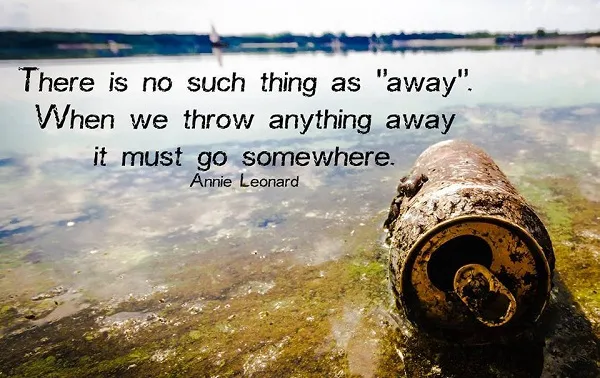
A solution is to resort to the next easiest option. In India we have a treasure trove of street food laid out like a personal buffet. Walking down a random footpath will offer you choices like pani puri, bhel puri, chaat, freshly cut fruit topped with spices and whatever else is the indigenous food culture of the region you are in.
Living without plastic is rarely easy. When it is, we should make the most of the advantage.



